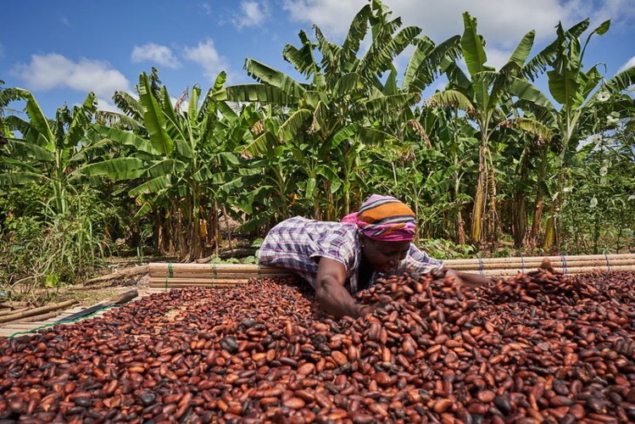
Audio By Carbonatix
The Delegation of the European Union to Ghana, Ministry of Lands and Natural Resources and the COCOBOD have hosted the second multi-stakeholder roundtable on Sustainable Cocoa in Accra
The environmental sustainability of cocoa production is at the heart of the second online roundtable discussion organised in the framework of the National Dialogue on Sustainable Cocoa.
A joint statement from the parties said the National Dialogue on Sustainable Cocoa in Ghana was launched in March 2021 by the EU and COCOBOD.
EU Ambassador to Ghana, Madam Diana Acconcia said, "The EU is committed to tackling the problem of global deforestation and forest degradation.
She said together as partners, "we can tackle climate change and biodiversity loss while ensuring socio-economic transformation."
"Transparent traceability system is essential to guarantee to all actors of the value chain that Ghanaian cocoa is environmentally sustainable,” she added.
Chief Executive Officer at COCOCBOD, Mr Joseph Boahen Aidoo said “COCOBOD, in partnership with the Forestry Commission, is currently working on a digital Cocoa Management System".
He said this system woild map all cocoa farms, collect data on the profile of cocoa farmers, and ensure that Ghanaian cocoa can be traced from the farm to the fork.
Chief Executive Officer at the Forestry Commission, Mr. John Allotey said a “Transparent and inclusive traceability systems will facilitate the monitoring of cocoa production and its potential impact on deforestation and forest degradation."
He said such systems would establish a climate of trust among all stakeholders in the value chain, as "we have learnt in the set-up of the Forest Law Enforcement, Governance and Trade - Voluntary Partnership Agreement and REDD+ Governance Structures.”
The first two online events attracted more than 150 participants each, confirming the high interest around sustainability matters in Ghana.
The second roundtable focuses on how traceability and transparency can be further improved to support a cocoa supply chain that can prove to be deforestation free.
Representatives of a large spectrum of stakeholders involved in the cocoa sector - government officials, civil society organisations, farmers’ organisations, private sector representatives and development partners shared their experiences and lessons learnt around traceability as a mechanism to monitor and prevent deforestation.
Recommendations from these discussions feed a broader dialogue launched last year by the European Commission together with global cocoa lead producers Ghana and Côte d’Ivoire.
Latest Stories
-
NAIMOS has failed in galamsey fight; it’s time for a state of emergency – DYMOG to President Mahama
2 hours -
Mahama to open African Court judicial year in Arusha, mark 20th anniversary
2 hours -
Ghana begins partial evacuation of Tehran Embassy as Middle East tensions escalate
2 hours -
EPA tightens surveillance on industries, moves to cut emissions with real-time monitoring system
2 hours -
Police conduct show of force exercise ahead of Ayawaso East by-election
4 hours -
Ghana launches revised Early Childhood Care and Development Policy to strengthen child development framework
4 hours -
AI to transform 49% of jobs in Africa within three years – PwC Survey
5 hours -
Physicist raises scientific and cost concerns over $35m EPA’s galamsey water cleaning technology
5 hours -
The road to approval: Inside Ghana’s AI strategy and KNUST’s leadership
6 hours -
Infrastructure deficit and power challenges affecting academics at AAMUSTED – SRC President
6 hours -
Former US diplomat sentenced to life for abusing two girls in Burkina Faso
6 hours -
At least 20 killed after military plane carrying banknotes crashes in Bolivia
6 hours -
UK reaffirms investment commitment at study UK Alumni Awards Ghana 2026
6 hours -
NCCE pays courtesy call on 66 Artillery Regiment, deepens stakeholder engagement
6 hours -
GHATOF leadership pays courtesy call on Chief of Staff, Julius Debrah
6 hours

